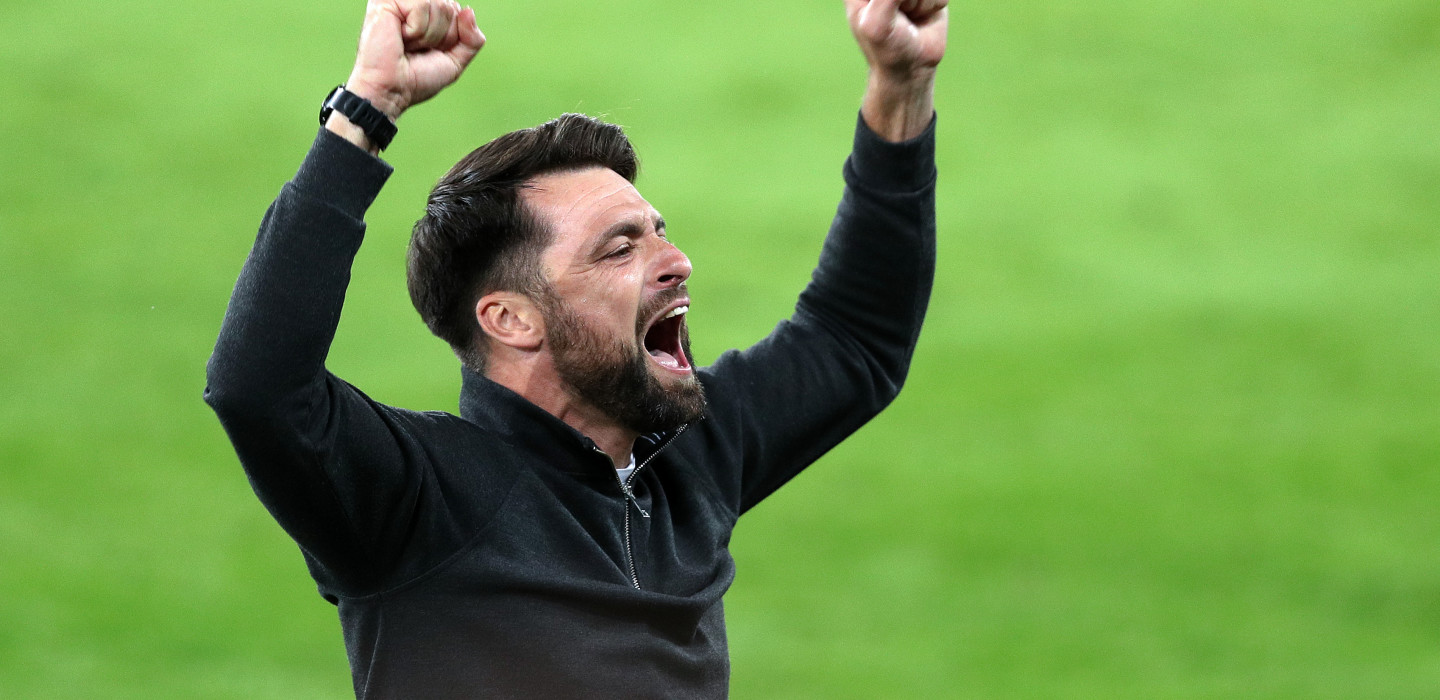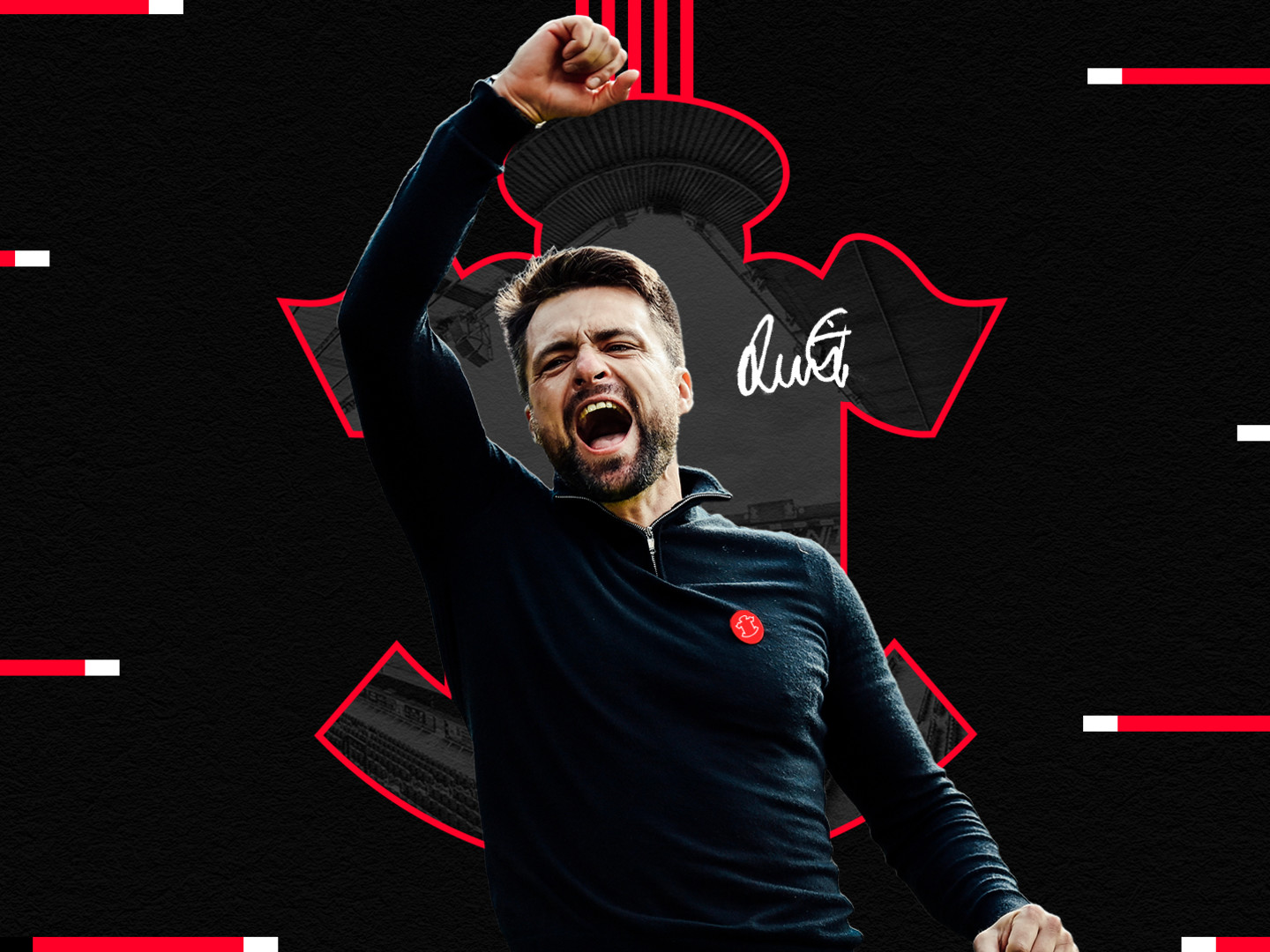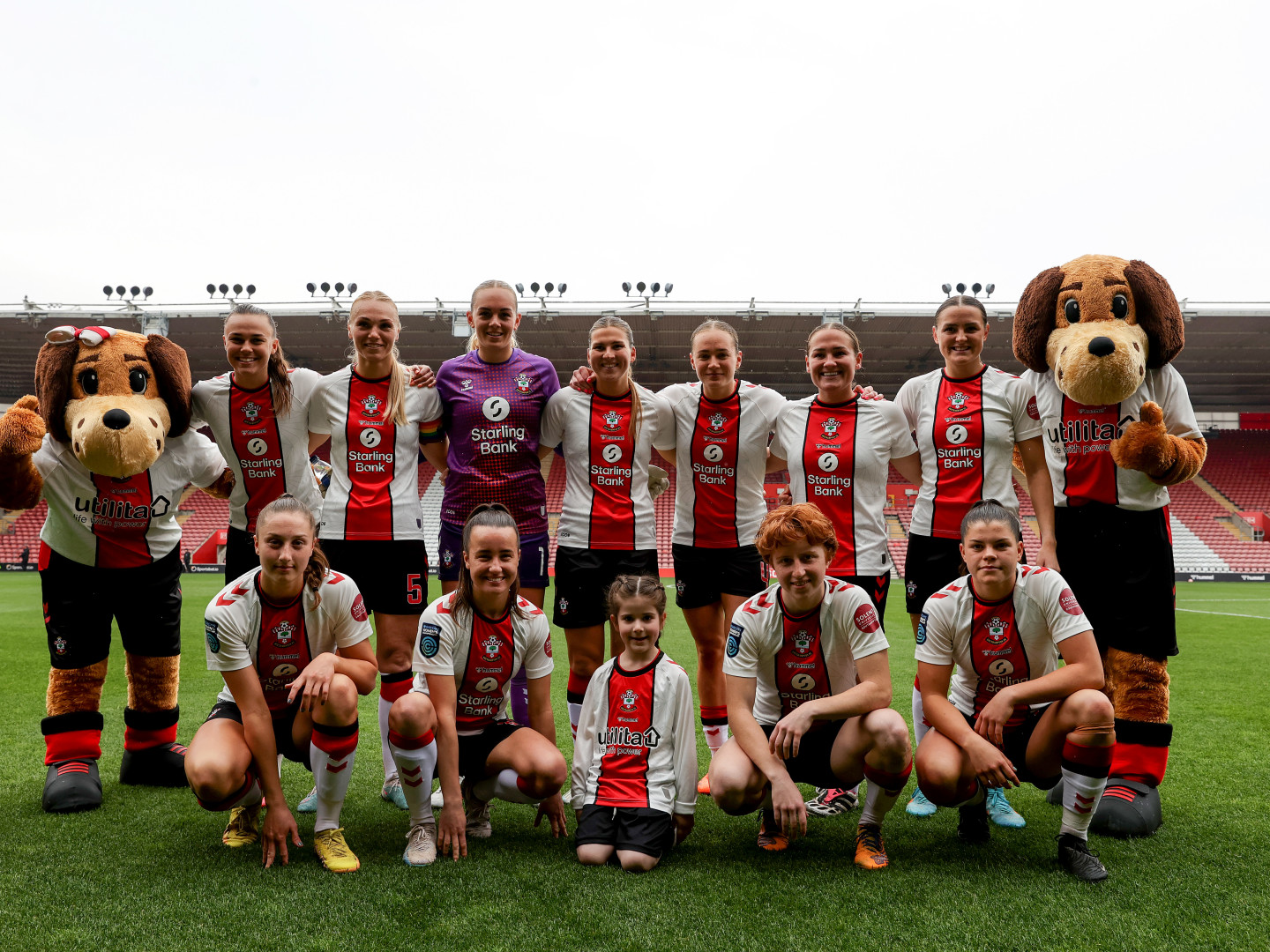In Profile: Russell Martin

"I played in teams who were dominant with the ball and loved it. I also played in teams who didn't have much of the ball and hated it. My style is probably shaped by that.”
Russell Martin may appear an affable character and his fluid teams easy on the eye, but the new Southampton manager is uncompromising in his view on how football should be played.
Martin wants his players to take control of the ball. Without it, you have less chance of scoring and more chance of conceding. It really is that simple.
At 37, the former Scotland international is the fourth-youngest permanent boss in England’s top four divisions.
Within the EFL, the landscape is changing. Of the six managers promoted from the Championship and League One last season, four are aged 40 and under.
Martin cites Barcelona, Manchester City and Spain as three teams that have inspired his possession-heavy approach. In the summer that Pep Guardiola completed an historic treble, his influence has never been greater.
“It’s the British mentality towards football,” Martin observes. “Traditionally, it’s been about rolling your sleeves and fighting, but, slowly but surely, it’s changing.”
Martin in action for Peterborough, where he was made captain aged 22
Hailing from the south coast, Martin was born in Brighton, where he spent time in the club’s academy before leaving at 18 to start his senior career with nearby Lewes in non-league.
From there, he joined Wycombe, taking his first steps in the EFL and playing under Paul Lambert for the first time, a manager who would become a prominent figure in his playing career.
The closest Martin came to promotion from League Two was an unsuccessful assault on the play-offs in his final season, but he still made the step up to League One that summer by joining newly-promoted Peterborough in 2008.
Darren Ferguson was quick to identify his leadership qualities, appointing Martin as the club’s youngest ever captain at the age of 22. It worked, with Posh promoted again in his first season, reaching the Championship for the first time in 15 years.
After Ferguson was replaced with Peterborough struggling in the second tier, Martin returned to League One to join Norwich, initially on loan, reuniting with Lambert for what would become a hugely successful era.
The former Scotland defender up against Wayne Rooney at Wembley
Back-to-back promotions under Lambert propelled Norwich to the Premier League, with Martin a key player.
The right-back was an ever-present in the triumphant Championship campaign, affectionately dubbed “the Norfolk Cafu” for his bursts up the flank, finishing second only to top scorer Grant Holt in the club’s Player of the Year vote.
He earned his first international call-up that year, qualifying for Scotland through his father. He went on to earn 29 caps for the Tartan Army, the last of which was also notable for being Stuart Armstrong’s debut – a 1-0 win over Slovenia in 2017.
At club level, Martin spent a total of nine years at Carrow Road, where he became captain and later matured into a centre-back, playing more than 300 times and winning three promotions.
One hundred and twenty-five of those appearances came in the Premier League, including one game against Manchester City in which he scored twice, while he also has a goal at Anfield on his CV – an equaliser to earn a point in his final top-flight campaign.
Martin captained Norwich to Championship play-off glory in 2015
Playing into his mid-30s, Martin had stints with Rangers, Walsall and MK Dons, helping the latter win promotion – the fifth of his career – before taking his first step into management after more than 500 league appearances.
His keep-ball philosophy was evident from the start. The Dons set a new British record by scoring a goal after 56 consecutive passes against Gillingham in 2020/21 – Martin’s only full season, in which he led MK to a 13th-placed finish in League One.
Only Manchester City and Barcelona had a higher average possession in Europe than the Dons that year, who also had the most touches in the opposition box of any team in their division.
“It's a 90-minute game plan to try and dominate the ball,” is how Martin describes it. It’s demoralising to play against.
The uninterrupted passing sequence at Priestfield, eventually finished by Will Grigg, lasted over three minutes. Martin’s men continually probe for spaces just outside the penalty area, go back to the halfway line and rebuild, until a sharp one-two opens up an opponent whose concentration and energy were surely on the wane.
Two summers ago, Martin’s career took him to Swansea, who pointed to his “attractive, attacking style” as a seamless transition from Graham Potter and Steve Cooper before him, and even Roberto Martínez, Brendan Rodgers and Michael Laudrup in previous years – all of whom helped redefine the club’s image in the 21st century.
Finishes of 15th in his first season and 10th in his second showed his side’s progress, as Swansea missed out on the play-offs by just three points last season after a run of seven wins and two draws from their last nine matches.
Martin further endeared himself to Swans fans by achieving the first ever double in a south Wales derby, dismantling Cardiff 7-0 across the two league meetings in his first season, before repeating the feat in April with a dramatic last-gasp 3-2 win at the home of their arch rivals, taking Martin’s record in derbies to played four, won four.
Proof, if it was needed, that his commitment to passing football can stand up to even the most hostile environments. Now it’s up to Martin to do what he did as a player, and lead a relegated team straight back to the Premier League.

